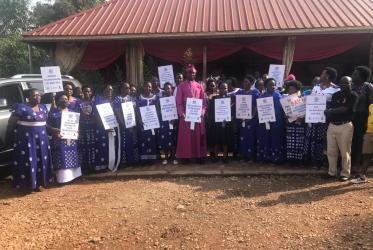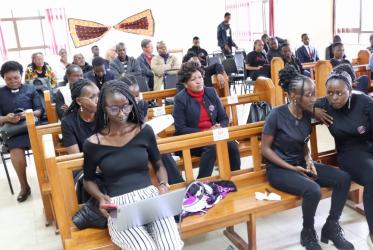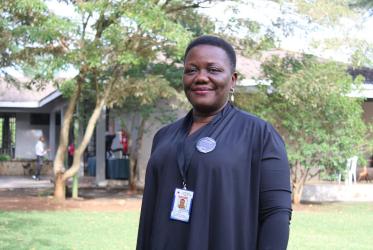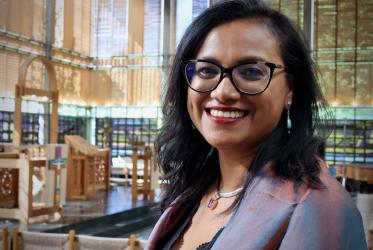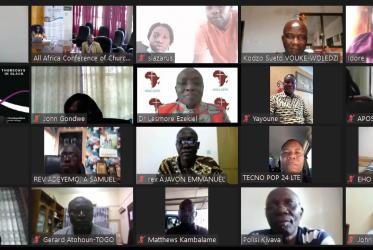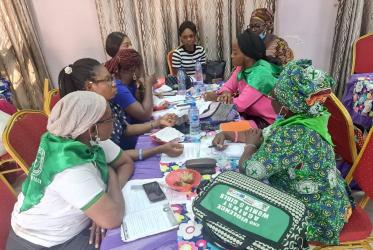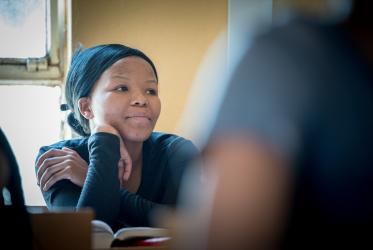Displaying 1 - 20 of 79
04 April 2024
As femicide cases rises, Kenyan religious leaders move to act
06 February 2024
In Angola, WCC takes human rights approach to obstetric fistula
01 February 2024
Theological education in Africa promotes social transformation
03 November 2022
Nigerian churches train women and girls on human rights
20 December 2021
African Churches mark International Women’s Day
09 March 2021
COVID-19 in conflict zones: “a crisis within another crisis”
27 November 2020



